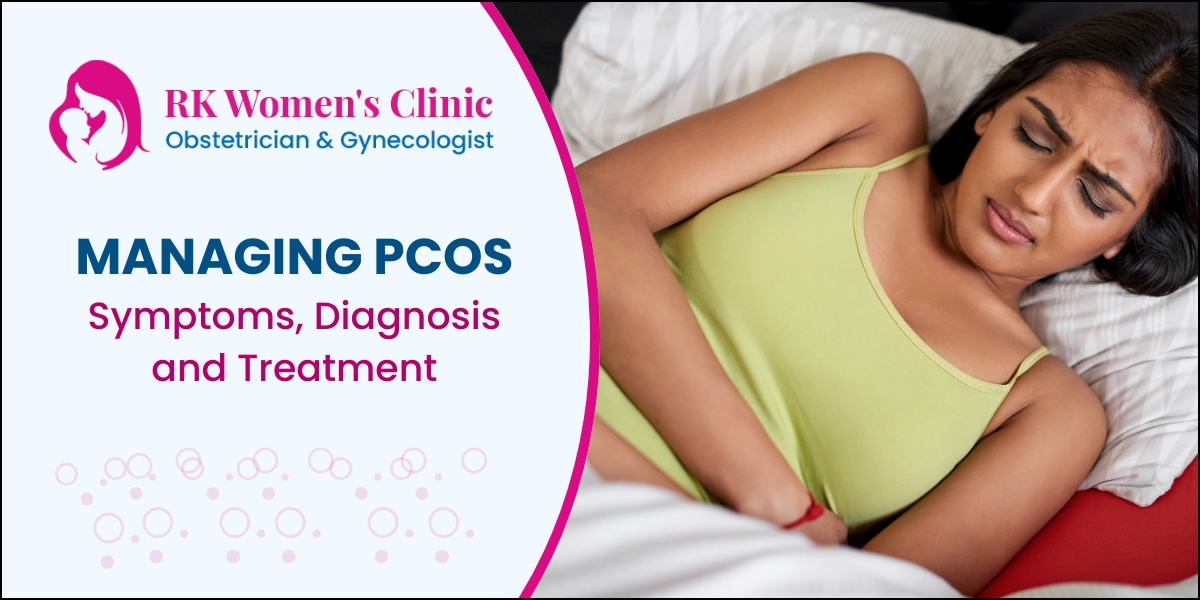Polycystic Ovary Syndrome (PCOS) is a common hormonal disorder affecting women of reproductive age. It can lead to various health complications if left untreated. Understanding the symptoms, diagnosis, and treatment options is crucial for managing PCOS effectively.
What is PCOS?
PCOS is a condition where the ovaries produce higher-than-normal levels of androgens (male hormones), leading to irregular menstrual cycles, cysts in the ovaries, and other metabolic issues. It is one of the leading causes of infertility in women.
Common Symptoms of PCOS
Women with PCOS may experience a range of symptoms, including:
- Irregular periods (missed, infrequent, or prolonged cycles)
- Excessive hair growth (hirsutism) on the face, chest, or back
- Acne and oily skin due to hormonal imbalances
- Weight gain or difficulty losing weight
- Thinning hair or male-pattern baldness
- Darkening of skin (acanthosis nigricans) in body folds
- Infertility due to lack of ovulation
How is PCOS Diagnosed?
Diagnosing PCOS involves a combination of medical history, physical exams, and diagnostic tests:
- Medical History & Symptoms Evaluation – Discussing menstrual cycles, weight changes, and other symptoms.
- Pelvic Examination – To check for any abnormalities in the ovaries.
- Blood Tests – Measuring hormone levels (LH, FSH, testosterone, insulin, etc.).
- Ultrasound (Sonography) – To detect ovarian cysts or enlarged ovaries.
A diagnosis is usually confirmed if a woman has at least two of the following:
- Irregular or absent periods
- High androgen levels (via blood tests or symptoms)
- Polycystic ovaries on ultrasound
Effective PCOS Treatment Options
While there is no cure for PCOS, symptoms can be managed through lifestyle changes, medications, and specialized treatments.
1. Lifestyle Modifications
- Healthy Diet – Low glycemic index (GI) foods, high fiber, and lean proteins help regulate insulin levels.
- Regular Exercise – Helps in weight management and improves insulin sensitivity.
- Stress Management – Yoga, meditation, and adequate sleep reduce cortisol levels.
2. Medications
- Hormonal Birth Control – Pills, patches, or IUDs regulate periods and reduce androgen levels.
- Metformin – Improves insulin resistance in women with PCOS.
- Anti-Androgen Drugs – Reduce excessive hair growth and acne.
- Fertility Treatments – Clomiphene or letrozole can induce ovulation for women trying to conceive.
3. Advanced PCOS Treatments
- Laparoscopic Ovarian Drilling (LOD) – A minor surgical procedure to restore ovulation.
- IVF (In Vitro Fertilization) – Recommended for women with PCOS struggling with infertility.
Why Early Diagnosis & Treatment is Important?
Untreated PCOS can lead to long-term complications such as:
- Type 2 diabetes
- Heart disease
- Endometrial cancer
- Sleep apnea
- Depression and anxiety
Seeking timely medical help from a PCOS specialist can prevent these risks and improve quality of life.
Dr. Akula Ramya Krishna – Best Gynecologist in Kasarvadavali for PCOS Treatment
If you’re experiencing PCOS symptoms, consult Dr. Akula Ramya Krishna, a leading gynecologist in Kasarvadavali, specializing in PCOS treatment. With personalized care and advanced treatment options, she helps women manage PCOS effectively and improve reproductive health.





